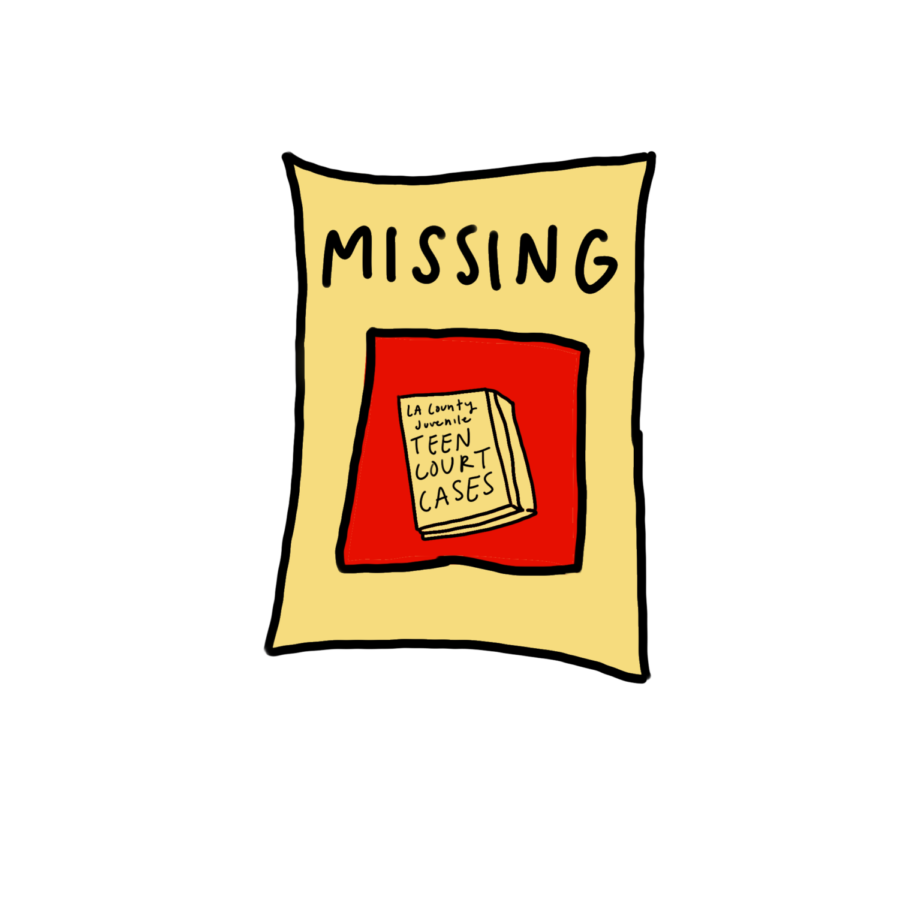Closed for court
Due to a lack of available court cases, Teen Court is indefinitely suspended
For many clubs at Redondo Union, this school year marked a return to normal meetings and activities. However, for the Teen Court, a program where students compose a jury in real trials of minors who have committed misdemeanor offenses, this is not the case: the club has been temporarily canceled due to a lack of cases for them to take on.
“Because kids weren’t in school, they weren’t being caught or misbehaving in the same way,” Teen Court’s faculty advisor Caterina Montesano said. “A lot of our cases are kids bringing drugs on campus or kids getting into fights on campus or kids going to the mall and shoplifting. With COVID-19, a lot of kids weren’t out in the same way. My initial thought was, ‘Okay, maybe we’re not getting cases because people aren’t [leaving their homes to get] in trouble.’ But now that I’m still calling in January, I’m a little less convinced with the argument; I think it [might be because] there are a lot of teen court programs in South Bay, and there’s just not enough supply of cases.”
The Teen Court is run by the Los Angeles court system, which supplies cases to the organization Parents, Educators/Teachers & Students in Action (PESA) which then gives the Teen Court their cases. While a real judge is present, the students get to question the minors and their parents to decide whether or not they are guilty and, if guilty, what the terms of their probation should be.
“The difference with Teen Court is that this is designed to be kind of restorative in nature, so it’s not like [the minor] is going to go to jail for X amount of days or pay a fine; it’s more to do with therapy, rehab, writing a letter of apology or curfew to help prevent that behavior from reoccurring,” Montesano said. “And the nice thing about Teen Court is that if the minor then does what they’re supposed to do in those six months, it’s not on their record. It’s a nice way to try to keep people from redoing the same behavior over and over again.”
However, the LA courts began sending cases to other organizations, even before the pandemic, decreasing the work available for the students to perform. Last year, when cases were largely unavailable, Montesano arranged guest speakers over Zoom in order to continue their monthly meetings. However, this year she decided with the club members to hold off on all Teen Court sessions for a semester, as they realized there likely would not be cases and the students had already heard all of the guest speakers.
While Montesano hopes to “get back in full stride next year,” she is struggling to receive answers as to if and when the program return to normal and why the cases are currently so low— whether it is a short term problem made worse by COVID-19, or LA courts are simply using Teen Court less, meaning the program could be permanently jeopardized.
“At this point, it’s not canceled because we’re hoping that new cases will return,” Montesano said. “But right now we’re kind of in this middle gray zone of the waiting game.”
Senior Andrea Guevara, who has been a part of the Teen Court since she was a freshman, explained that the program allowed her to positively influence the lives of the minors, thus causing her to feel equally disappointed with its recent postponement. For example, by being able to assign service hours connected to the interests or hobbies of the minor, Guevara knew that her actions could make a difference in others’ lives.
“I think what really got me interested in it was just the fact that I could be involved in and have an impact on the justice system at such a young age, like 14 or 15,” Guevara said. “It also intrigued me that these were actual court cases. These are actually legit and real world situations.”
When cases were first siphoned pre-COVID (in the 2018-2019 school year), students in Teen Court wrote letters to the LA Court to save their program, demonstrating the passion and commitment other students felt towards the club as well. This dedication to the Teen Court stems from the life-changing opportunities it provides to both the students and the minors, according to both Guevara and Montesano.
“I think it was really eye opening for our student body to hear stories of kids who have drastically different lives than them,” Montesano said. “Kids would learn about what their family life or what their schools were like and the difficulties they’ve gone through, allowing our kids to build empathy for their experiences.”
The uncertainty of the Teen Court’s suspension has caused students to miss out on the long-term and broader socio-political benefits reaped by the program.
“For me, the hardest part for the students is that this was one of the few ways that you can engage in democracy when you’re not 18 yet,” Montesano said. “And when you’re 18 is when you get to have real jury duty or voting, meaning you can participate more actively. I think that was really important.”
According to Montesano, the effects of the court’s current cancellations are felt not only by herself and the student jurors, but additionally by the students committing the misdemeanors, due to the program’s uniquely flexible design.
“I would hope that if [the LA courts] are not using teen court, they’re at least still allowing this type of restorative justice,” Montesano said. “My concern is if they’re not doing that, are they just putting the students in with the regular court system. This is supposed to still scare them a little bit to be like, ‘Oh, I messed up,’ but also allow them to see that we’re doing this because we want to see them succeed, not because we’re trying to punish them.

Hi! I'm Lauren Greene, currently a junior at RUHS. When I'm not at school or doing homework, my time is mainly occupied by hours and hours of competitive gymnastics. I also love traveling and doing anything...



